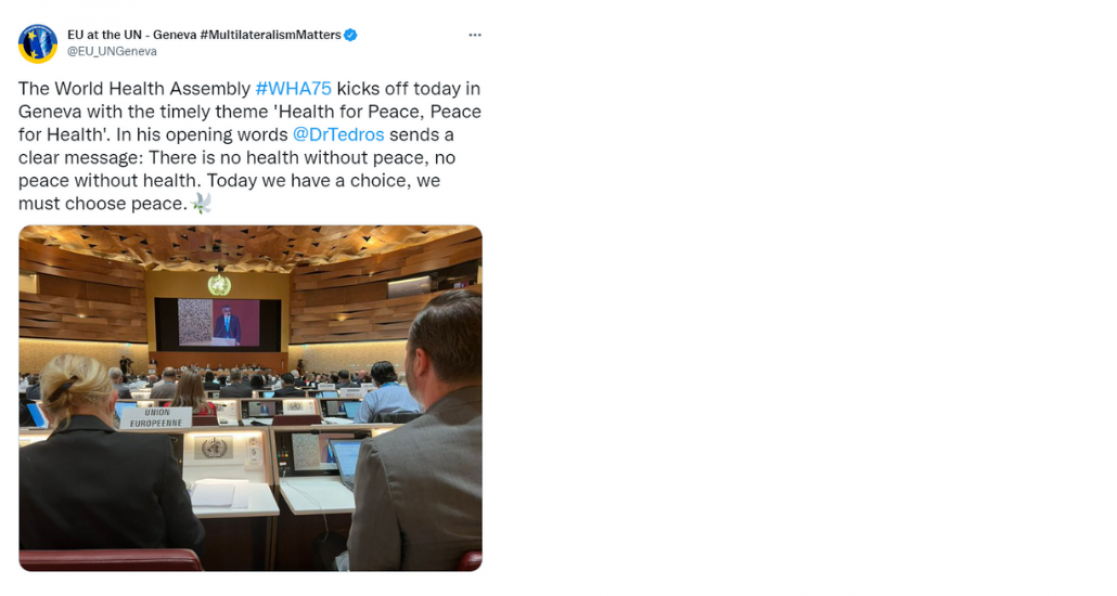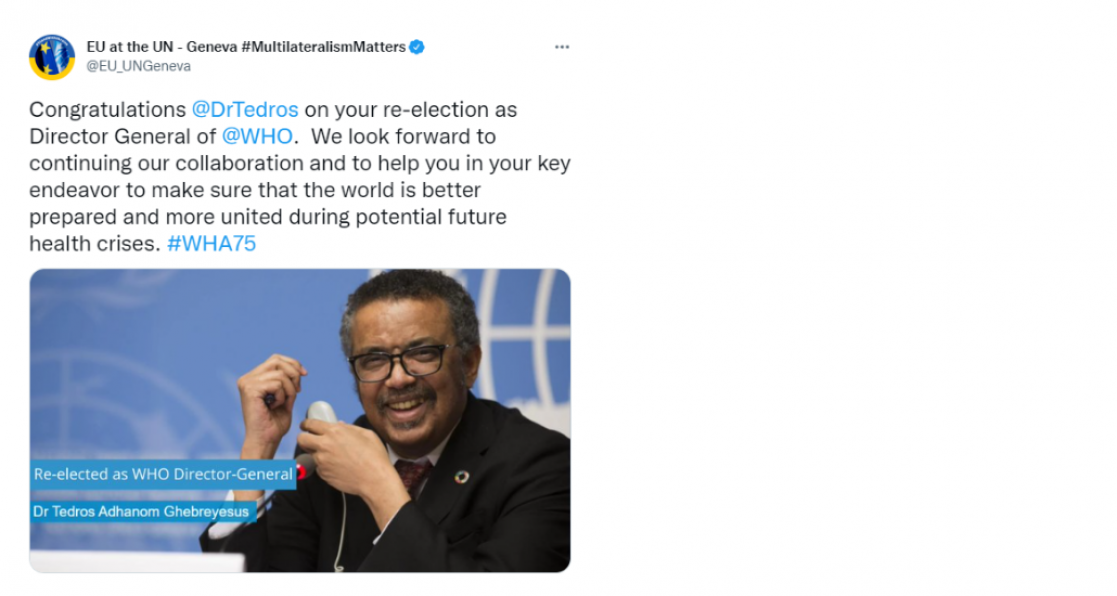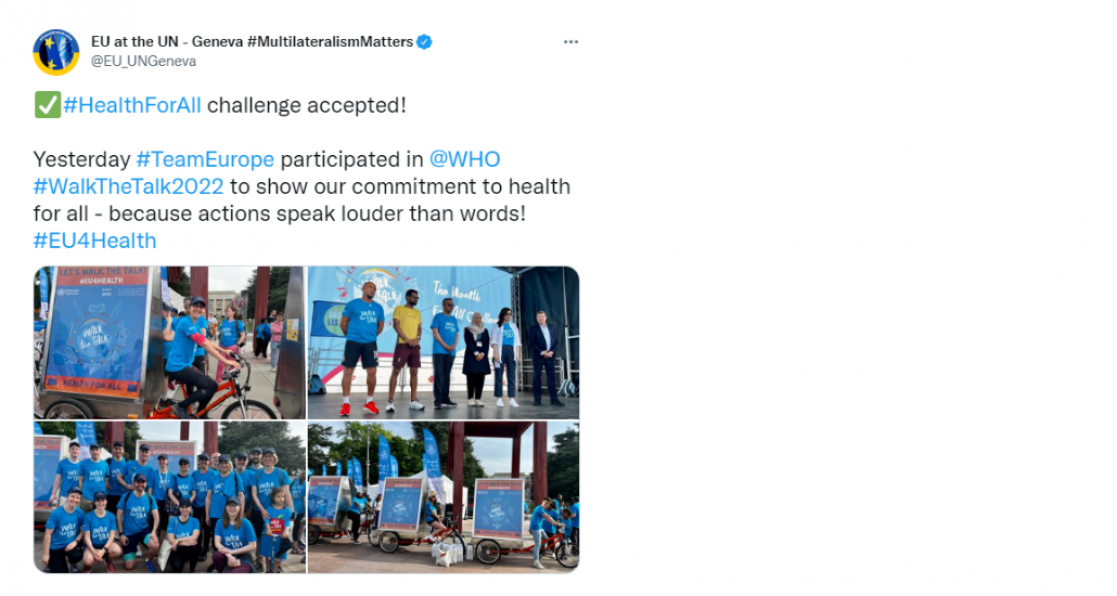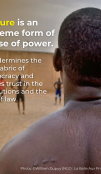World Health Assembly: Health for peace, peace for health

The theme of this year’s Health Assembly is “Health for peace, peace for health.
“Sadly, the horrific events of the past few months illustrate the relevance of this topic,” says the EU in its opening statement of the Assembly. “In our region, Russia's unprovoked and unjustified war of aggression against Ukraine seriously affects the lives, health and well-being of countless innocent civilians. This aggression also grossly violates international humanitarian and human rights law, the UN Charter, and undermines international peace, security and stability. This is why the EU supported the organization of the Special Session of the Regional Committee for Europe held on May 10th to discuss the health emergency in Ukraine and neighbouring countries and request the DG to report upon it to this Assembly. The EU and its Member States demand that Russia immediately cease its military action, withdraw all its troops from the entire territory of Ukraine, and fully respect Ukraine’s territorial integrity, sovereignty and independence within its internationally recognized borders. We call once again on Russia to immediately stop attacks on health care and to allow the safe evacuation of civilians. We condemn the failure to establish and respect humanitarian corridors with the necessary ceasefire assurances. Free and safe access for those delivering medical and humanitarian assistance must also be ensured, in line with basic human rights principles and international humanitarian law.”

These fundamental principles apply to any situation of conflict. Wars and conflicts have profound and lasting negative impacts on the health of populations. They always leads to the same dire consequences:
- loss of life, physical trauma and injury, psychological trauma, and various forms of abuse against civilians. We condemn in particular the practice of sexual and gender based violence by combatants and urge the WHO to continue its efforts to support survivors with essential care;
- disruption of essential health services, treatment of chronic conditions, maternal and child health, health promotion and disease prevention, including routine immunization campaigns;
- disruption of medical supply chains, destruction of infrastructures including health facilities, as well as displacement of populations.
In its opening statement the EU wholeheartedly commended WHO for its work in the field and the tireless efforts undertaken in very complex and dangerous settings. “We are also conscious that effects of wars and conflicts on the health of populations continue to be felt sometimes for generations, with reduced access to schools, problems in accessing safe drinking water and food jeopardize the health of all populations, in particular women, children, new-borns and the elderly.”
The COVID-19 pandemic and other health emergencies with international reach have highlighted the leadership and coordinating role of WHO in responding to such events. Strengthening preparedness for and response to health emergencies are therefore also a key theme of the Health Assembly.
“The ongoing COVID-19 pandemic reminds us all of the need for trust and cooperation among all nations so we can better withstand and respond to shared health threats,” says the EU in its statement. “Peace is conducive to the flourishing of science and technology, to the sharing of information and knowledge, to solidarity and to sustainable economic, social and environmental development. Peace, communication and trust at all levels are needed to facilitate the last mile required to vaccinate people and deliver health services in remote areas. The COVID-19 pandemic also highlighted the need for coordinated responses between peacebuilding, development cooperation and humanitarian actors in the strengthening of health systems, based on normative guidance of WHO. In short, the world needs multilateralism in action to ensure health security, and multilateralism in action requires peace and trust.”
The World Health Assembly also re-elected Dr Tedros as Director-General of WHO for a second term. “The WHO and its Member States have faced an unprecedented health crisis since 2020 with the Covid-19 pandemic. While the WHO was subject to criticism and politicized by some, it has maintained its legitimacy and credibility as the leading and coordination agency for global health, at the center of the global health architecture. We are grateful for this,” said the EU in its congratulatory statement on Dr Tedros re-election.
“During your mandate, you have initiated a process of transformation of the organization. We expect that this transformation will pay particular attention to issues of good governance at WHO, in terms of management, funding and budget, as well as the prevention and responding to sexual exploitation, abuse and harassment.
The European Union and its Member States will do their best to strengthen the WHO, including through active participation in WHO's governing bodies or in important negotiations under the auspices of the WHO for the new international agreement on pandemics and for the amendments to the International Health Regulations (2005). You have started developing and sharing your vision of the global architecture for health emergency and we will help you in this key endeavor in order to make sure that the world is better prepared, more efficient and more united during potential future health crises.
We look forward to continued collaboration with you based on open, timely and transparent communication.”

On 26 May the World Health Assembly adopted with a large majority a resolution submitted by Ukraine, condemning in the strongest terms Russia’s aggression against Ukraine which has caused a health and humanitarian crisis in a huge scale. At the same time, the Assembly rejected a resolution submitted by Russia on the same issue.
'The Russian Federation’s invasion of Ukraine has caused a health and humanitarian crisis on a huge scale, with grave health impacts within and beyond Ukraine. We have witnessed attacks destroying health facilities, thousands of civilian deaths, deeply irresponsible attacks near nuclear facilities and huge disruption to health services across Ukraine. The risks of infectious disease outbreaks have skyrocketed in the middle of a global infectious disease pandemic,' says the EU in a co-sponors statement.
"Far from politicising the situation, Ukraine’s resolution focuses specifically on these health impacts, which we continue to bear witness to.
Yet despite the obvious reality of this health emergency, the Russian Federation has proposed a resolution based on a twisted alternative reality. In this parallel world, Russia itself bears no responsibility for this crisis. Every reference to the Russian Federation’s aggression has been excised from their text, as if this crisis had erupted spontaneously. References to health impacts beyond the European region have also quietly been dispensed with. This is not just shamefully dishonest. It is also a cynical attempt to dupe this forum. By copying and pasting language from Ukraine’s text – and from text agreed in other contexts – Russia has cobbled together a resolution which they believe you will find it hard to vote against. We urge you not to fall for this subterfuge. We, the World Health Assembly, must be crystal clear about where responsibility for this health crisis lies: it lies with the Russian Federation. If Russia’s military aggression ceases tomorrow, health services could be resumed within weeks and reconstruction could commence, and the export of grain could resume.The WHO’s European Region has voted by significant margin to ask the World Health Assembly to debate Russia’s aggression fully. Respecting that regional decision requires the World Health Assembly to reject the twisted alternative reality reflected in the Russian Federation’s resolution.The theme of this year’s Assembly is ‘Health for Peace; Peace for Health’. With this in mind, we urge you to support Ukraine’s resolution and to reject the resolution proposed by the Russian Federation."
Ahead of the World Health Assembly the EU also participated in WHO’s ‘Walk The Talk’ challenge, showing our commitment to Health for All.






